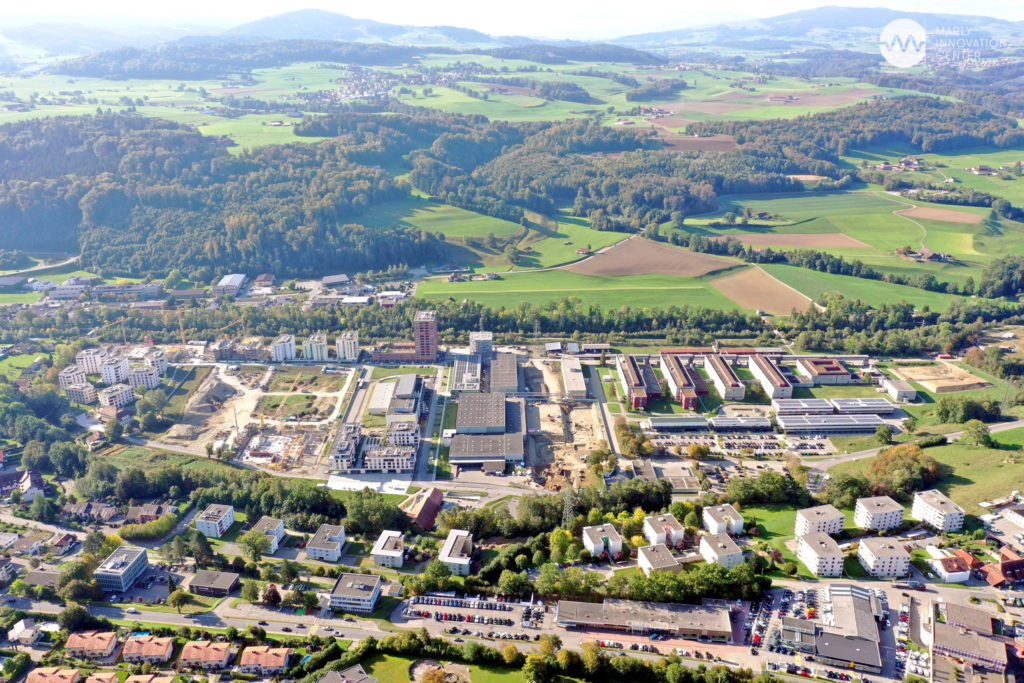
Western Switzerland for Robotics Companies
 As global demand for robotics rises, driven by workforce shortages and increased interest in automation, Western Switzerland offers companies a strategic base to develop and deploy cutting-edge robotics technologies.
As global demand for robotics rises, driven by workforce shortages and increased interest in automation, Western Switzerland offers companies a strategic base to develop and deploy cutting-edge robotics technologies.
Western Switzerland, a region renowned for its precision engineering and watchmaking heritage, has become a hub for robotics innovation, blending technical expertise with pragmatic industrial applications. Home to companies like ABB, Intuitive Surgical, STMicroelectronics, and a strong ecosystem of academic and governmental support, Switzerland’s robotics sector offers an attractive environment for companies focusing on industrial automation rather than flashy consumer robotics.
Swiss robotics companies are distinguished by a pragmatic approach, prioritizing function over spectacle. This emphasis on practical, industrial solutions is driving growth in sectors such as logistics, manufacturing, and healthcare. At the recent Swiss Robotics Day in Basel, over 50 robots were showcased, including robotic patrols, exoskeletons, and precise robotic arms designed for industrial tasks. In an article published by L’Agefi magazine, Mark Martin, a partner at French-company Cybernetix, noted the surge in global investment, with USD 8 billion raised by robotics start-ups in 2024. “Investment volume has grown significantly over the past five years,” he said, a trend further boosted by the integration of artificial intelligence (AI).
AI has transformed robotics from simple automated tools to sophisticated systems capable of interacting autonomously with their environment. “AI is now the brain of these robots,” said Angus Muirhead of UBS Asset Management. With the addition of sensors and data processing capabilities, robots can now navigate autonomously, expanding their potential applications and attracting investors. Fady Saad of Cybernetix highlights the growing interest due to the role of AI, which he says is attracting more attention and funding across the sector.
Industrial robotics as a key driver
The industrial robotics segment dominates the Swiss robotics market, with the International Federation of Robotics (IFR) reporting a 12% annual growth in installations since 2018. In 2023, global industrial robot installations reached over 4 million units. UBS’s Muirhead expects the segment to grow by 10% to 20% per year, driven by automation in logistics and supply chains. “Most warehouses globally are minimally automated,” he explained, identifying logistics automation as one of the fastest-growing areas in robotics.
In Switzerland, ABB leads the charge, while Zurich-based Verity uses lightweight drones for warehouse inspections, serving clients such as IKEA and DSV. Start-ups like Zurich’s Ascento, which produces autonomous robotic patrols, exemplify Switzerland’s focus on industrial applications, offering solutions for sectors impacted by workforce shortages.
Switzerland’s established robotics ecosystem
Western Switzerland’s robotics ecosystem benefits from decades of investment and a strong foundation in precision mechanics, thanks to its renowned watchmaking heritage. This longstanding focus has enabled the region to attract international companies like ABB, Intuitive Surgical, and STMicroelectronics, which leverage synergies with local research institutions. The Swiss Center for Electronics and Microtechnology (CSEM) and Microcity, a center of excellence in micro and nanotechnology, provide cutting-edge resources and support. This network is further bolstered by educational institutions like EPFL and ETH Zurich, both pioneers in robotics research since the 1990s.
The ecosystem is supported by various funding initiatives, including Innosuisse, Switzerland’s innovation agency. These efforts create a robust framework for innovation, allowing startups and established companies to collaborate closely with universities and research centers. According to Bluebotics CEO Nicola Tomatis, Switzerland has “all the ingredients for a success story,” from high-quality research and government support to a growing pool of skilled talent.
A record year for Swiss robotics investments
Swiss robotics start-ups secured nearly USD 190 million in funding in 2023, with investments in companies like Anybotics, Ascento, Verity, and Wingtra, even amid high global interest rates and challenging market conditions. Marko Bjelonic, CEO of Swiss-Mile, which raised USD 22 million in funding, attributes the strong investment climate to the mature robotics sector in Switzerland. Unlike U.S.-based start-ups in Silicon Valley, which face greater pressures from hype cycles, Swiss start-ups maintain a stable trajectory by focusing on market demand and sustainable growth.
Entrepreneur Anil Sethi noted that Swiss robotics companies emphasize “stable revenue creation” over marketing tactics. He contrasts Anybotics, a Zurich-based start-up specializing in explosion-proof patrol robots, with Boston Dynamics, whose robots are known for media-friendly stunts. Anybotics’ approach, which focuses on practical industrial needs in critical environments, has led to significant commercial success, deploying more patrol robots than any competitor.
A future in AI-Integrated robotics and advanced applications
AI integration has unlocked new functionalities for Swiss robotics companies, making robots more adaptable across various industries. The Swiss robotics sector is expanding beyond manufacturing into fields such as agriculture, climate tech, and healthcare. The country’s leading position in microtechnology and precision engineering also enables advances in medical robotics, as demonstrated by Intuitive Surgical’s choice to base part of its European operations in Western Switzerland.
According to Angus Muirhead of UBS, AI gives robots the “intelligence” to expand into more sectors, while Switzerland’s focus on meeting industrial needs, rather than consumer-facing gimmicks, gives it an edge in durable applications. Companies are tapping into Switzerland’s deep knowledge of microtechnology and materials science, as exemplified by the Adolphe Merkle Institute (AMI) and Micronarc platform, both of which provide specialized resources and training in nanosciences and micro-optics.
Supporting robotics through industry and research partnerships
Western Switzerland fosters collaboration between academia, industry, and government entities, creating an ideal environment for robotics companies. The recently launched Swiss Robotics Association, led by Nicola Tomatis of Bluebotics, aims to facilitate connections between research institutions and companies while promoting public acceptance of robots. This initiative complements other strategic partnerships, such as those offered by EPFL and ETH Zurich, which provide talent and innovation pipelines through spin-offs and research collaborations.
At the local level, facilities like the Parc Technologique de Saint-Imier (PTSI) offer collaborative spaces for start-ups and established companies in robotics and microengineering. The Fondation Suisse pour la Recherche en Microtechnologie (FSRM) provides training in fields such as precision engineering, micro-optics, and micropositioning, ensuring a steady supply of specialized skills to meet the sector’s demands.
Further strengthening Western Switzerland’s robotics ecosystem, the Swiss Cobotics Competence Center (S3C) was inaugurated within the Switzerland Innovation Park Biel/Bienne (SIPBB). The center serves as a hub for knowledge exchange and demonstration in collaborative robotics, empowering companies to integrate cutting-edge cobotics solutions into their operations.
A strategic opportunity for international robotics companies
Western Switzerland’s robotics sector presents an attractive opportunity for international robotics firms looking to expand. With its rich history in precision engineering, government support, and an established research ecosystem, the region is well-positioned to lead advancements in industrial and AI-integrated robotics. Swiss start-ups have consistently proven their ability to attract investment by delivering reliable, efficient solutions tailored to the needs of industries like logistics, healthcare, and manufacturing.

